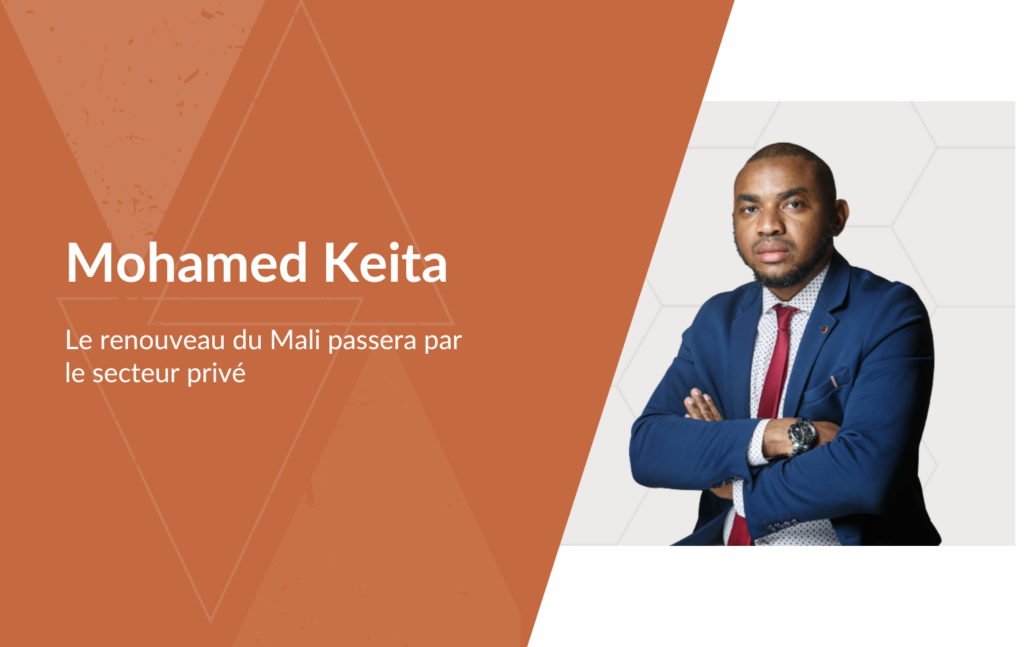Recent crises and the resulting structural vulnerabilities have considerably diminished the capacity of Sahelian countries, already historically very weak, to attract investment. For instance, after an all-time high of 860 million USD in 2019 (5% of GDP), foreign direct investment to Mali (net inflows) has fallen drastically to just 252 million in 2022 (1.3% of GDP).
Despite the low priority given to private sector development in fragile security contexts, it plays a central role during and after conflict situations. Experience has shown that the private sector remains active even in times of conflict, and can adapt to overcome systemic shocks.
In this interview, Malian entrepreneur Mohamed Keita, Director and Co-Founder of Zira Capital, a company created in 2022 and dedicated to financing and supporting start-ups and SMEs in Mali, shares his fund-raising experience and argues for the need to continue supporting the private sector despite a difficult security and socio-political context.
Entreprenante Afrique: What is the current state of entrepreneurship in Mali?
Mohamed Keita: Over the past ten years or so, the Malian economy has been affected by the combined effects of the security crisis and political and institutional crises. We are keeping a close eye on how the situation evolves, and our wish as entrepreneurs is of course to quickly return to a stable business environment.
But despite this difficult context, despite the challenges, we observe that entrepreneurs are still succeeding at creating opportunities locally. They develop projects and goods that satisfy local needs. They create and maintain jobs that support thousands of households, and stimulate other aspects of economic activity in the process.
Malian companies are exceptionally resilient, but they need strategic partners to support them, both financially and extra-financially. This is why, together with other players (BNDA, Investisseurs & Partenaires and a number of private individuals), we have launched Zira Capital to support these small local businesses through financing mechanisms and tools tailored to their development projects.
Raising funds to support entrepreneurship in such a high-risk country is no easy task, how did you address the financial backers?
M. K.: The model of Zira Capital, a fund co-created by or with local players to provide equity financing for local businesses, is a model that has already been set up and is beginning to prove its efficiency in other African countries, in other countries in the Sahel zone, such as Burkina Faso or Niger. However, it’s a completely new concept in the Malian entrepreneurial ecosystem.
The initiative was well received, and generated enthusiasm among Malian entrepreneurs. Even before the official creation of the management company, we had built up a pipeline of quality projects. We had built up a database of high-potential companies in a variety of sectors, all of which are linked to the fundamental needs of the Malian economy: agri-food, which accounts for 45% of GDP and employs 80% of the population, but also energy, essential services, health and education.
Our main argument for convincing people of the need to create our financing facility was this pipeline of quality entrepreneurs, rooted in the country and whose needs had been clearly identified.
Investing in a country like Mali obviously involves taking on a certain degree of risk. But mechanisms can be put in place to mitigate them. During the fundraising process, which lasted several years, we faced several challenges. We had identified a number of potential partners, including subsidiaries of multinationals with whom discussions had reached a more or less advanced stage, but whose enthusiasm gradually subsided in view of the changing political situation. This is understandable when a certain degree of investment security can no longer be guaranteed.
But fortunately for us, the vast majority of investors identified at the outset of the project maintained their confidence in our project, and supported us through our first closing in 2022.
“Investing in a country like Mali obviously involves taking on a certain degree of risk. But mechanisms can be put in place to mitigate them”
The Sahel countries have received significant public aid from the international community in recent years, with mixed results. Should we rethink the mechanisms of public aid? Does SME investment represent a more impactful alternative?
M. K.: In 2021, Mali received USD 1.42 billion in official development assistance. This represents an important resource for the country in general. I wouldn’t say that aid is inappropriate, but that it needs to be channeled more towards local actors, in particular private companies. Some historical approaches to public aid have shown their limits. And we need to deploy innovative mechanisms and more substantial resources to enable public private finance institutions (DFIs) to be more present, faster, and more effective.
I am among those who firmly believe that the development of our countries, particularly fragile states like Mali, relies on the growth of a network of small and medium-sized enterprises.”. An effective way of doing so would be to bet on making more resources available to these companies, especially resources they have difficulty mobilizing locally.
“I firmly believe that the development of our countries, particularly fragile states like Mali, relies on the growth of a network of small and medium-sized enterprises.”
What’s important to note is that Mali’s entrepreneurial fabric is vibrant. There’s a tremendous amount of effervescence, and more and more people are starting up. Rather young people, who bring new solutions, who despite the context, develop services with quality, manage to launch projects. And I think this adds a note of hope to the country’s overall picture, which is rather complicated, with a security crisis that has lasted for ten years or so, and political instability. For my part, I’m among those who are betting that Mali’s renewal will come largely from the private sector.
![]()
Further reading: in our “Resilience and Adaptation” series, discover Maïmouna Baillet’s article, “the battle of Niger’s women entrepreneurs”
